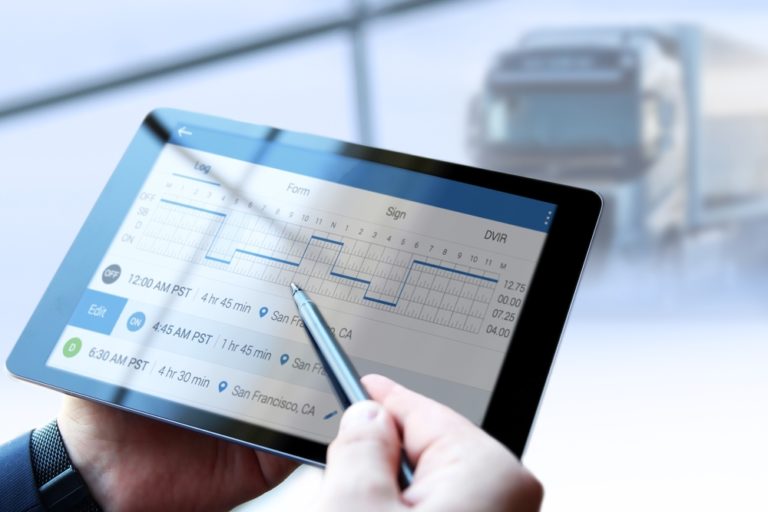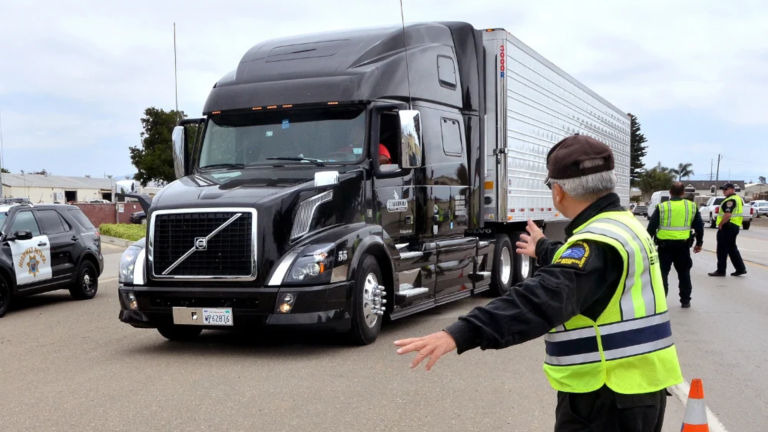Truckers: How to avoid trucking violations in 2023
From keeping products safe to getting to locations on time, not to mention driving for long periods at once, you have a lot on your plate. Plus, in addition to doing your job successfully, it’s also important to be aware of current regulations to help you avoid trucking violations.
Receiving a violation as a truck driver can be devastating. From lowering your safety score to receiving hefty fines, there are many reasons to avoid them.
In this article, we’re covering the information you need to avoid trucking violations this year and beyond – from new regulations to existing exemptions.
The Regulations You Need to Know About
Here’s a brief rundown of the primary rules you need to remember. (If you’d like to learn more about these rules, check out our guide for fleet managers).
- 11-Hour Driving Limit – You’re only allowed to drive 11 hours within a 14-hour time period.
- 14-Hour Shift Limit – CDL drivers can’t drive more than 14 hours straight.
- 30-Minute Breaks – You’re required to take a 30-minute break after you’ve driven for eight hours.
- 60/70-Hour Limit – You can’t drive if you’ve worked 60/70 hours over 7/8 days. You have to take 34 hours off first.
- The ELD Rule – The FMCSA requires you to use Electronic Logging Devices (ELDs).
The Noteworthy Exemptions
There are several exceptions to the rules we just mentioned. Here are the ones that might affect you:
1. The Short-Haul Exemption
If you remain within a 150-air-mile radius of your location and don’t exceed the 14-hour shift limit, you’re exempt from the Hours of Service (HOS) rules above.
2. 150 Air-Mile Radius Exemption
The 150 Air-Mile Radius Exemption states that if you:
- Stay inside a 150-air-mile radius of where you start your day.
- End your shift at the same spot.
- Don’t drive for more than 14 hours.
- Take an entire 10 hours off at the end of your workdays.
You’re exempt from the 30-minute break rule and won’t need to complete an ELD log. (Note: the rules are slightly different if you’re a non-CDL short-haul driver.)
3. The 30-minute Break Exception
Short-haul drivers aren’t required to take a 30-minute break.
4. The 16-hour Short-Haul Exception
Short-haul drivers can occasionally extend their shifts to 16 hours if certain conditions are met.
5. 8-Day RODS Exemption
If you keep a Record of Duty Status (RODS) for fewer than eight days inside a 30-day time frame, you don’t have to comply with the ELD rule.
6. Adverse Driving Conditions Exemption
You can extend your driving window by up to two hours if adverse driving conditions occur (like inclement weather or road closures).
Stay Compliant with an ELD Built with Truckers in Mind
The easiest way to ensure you stay compliant and avoid trucking violations is by incorporating and using your ELD. At FleetUp, our ELDs are designed with drivers in mind, helping you stay compliant and reduce FMCSA fines. They are incredibly easy to use, even for the least tech-savvy driver.
The interface is designed to significantly reduce the time you spend on administrative tasks and maintaining accurate records to stay compliant. The FleetUp mobile app makes it easy to log Hours of Service (HOS), plus FleetUp’s voice assistant automatically identifies potential HOS errors – and then suggests how you can correct those errors.
FleetUp’s voice assistant also helps you fill out HOS logs correctly with an AI teacher that can clear up any confusion and help you avoid HOS mistakes.
The FleetUp ELD installs quickly and easily, making it easier than ever to protect your most valuable assets. You can also easily share your real-time GPS location, ETA, HOS status, and more.
In addition, our intelligent ELD tracks your time to the nearest minute, giving you more opportunities to earn even more money. It also reduces maintenance costs by letting you (and your fleet manager) know when there’s an issue with your vehicle. In other words, it’s no longer your sole responsibility to tell when something is going on with your truck.
In short, we designed our ELD to empower you to drive your best. It’s discreet and accurate, so you don’t have to worry about being held responsible for things that aren’t your fault. To learn more about our ELD, click here.








